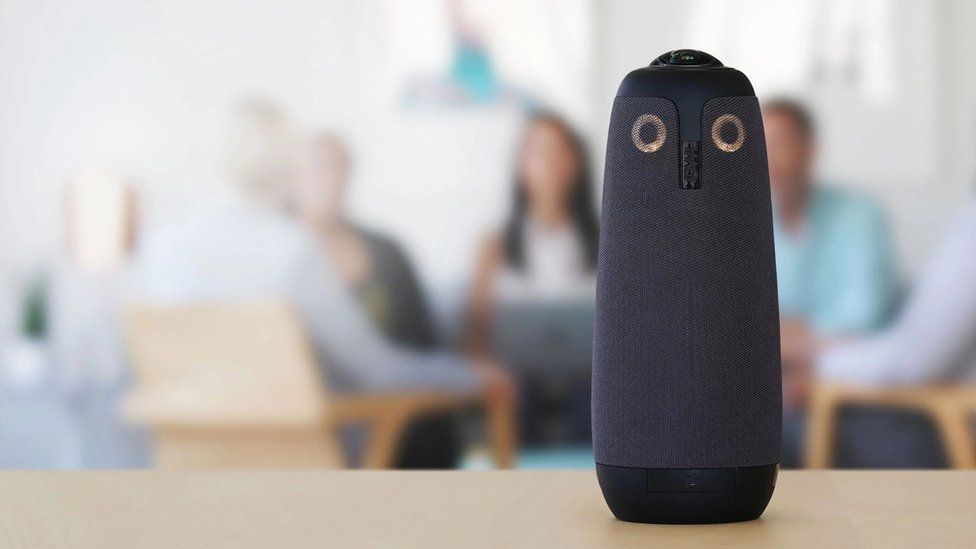Video-calling 'owl' helps opioid addicts in US
- Published

Mental health experts in West Virginia, US, are turning to a video-calling "owl" to run opioid treatment sessions.
The owl-shaped camera automatically focuses on the person speaking but also captures a panoramic view of everyone in the room.
Staff said the technology lets them run group therapy sessions and treat former opioid addicts.
It also helps them reach patients who live far away from treatment centres in the sparsely populated state.
"Video conferencing saves provider time and knowledge in a state that's underserved in... mental health and education-related services," said Ashley Six-Workman, a senior registered nurse who helps to run the West Virginia telepsychiatry project.
Many of the patients receiving treatment would not otherwise get help, she said, since they did not have the money to travel long-distance regularly or did not feel happy making such a trip.
"Video allows the patients to stay in their county, the place where they feel comfortable and confident," she said.
The telepsychiatry project runs 32 clinics across 23 of West Virginia's 55 counties. In an average week, it dispenses more than 140 hours of help.
Group help
The project has been running for several years but has recently trialled a number of different video systems in a bid to make counselling sessions more effective.
Staff said some of the earlier video-calling technology had often got in the way of meaningful interaction.
Prof Kari Law, a psychiatrist at West Virginia university, who also helps to run the counselling scheme, said the group had gone through about eight different camera, speaker and microphone combinations to find what worked best.
"That often led to mass confusion for staff in other offices because they are not so savvy on the technology side," said Dr Law.
Ms Six-Workman said she often left clinics "frustrated by the technology".
"I could only imagine how the patients felt," she said.
The telepsychiatry project has now partnered with start-up Owl Labs to use its video-conferencing system.
Staff said the new technology had helped improve interaction when, in some cases, six or seven people had group therapy.
"With opioid treatments the group-based model works better because they can all hold each other accountable and are placed in different groups depending on where they are in the programme," said Ms Six-Workman.
Dr Law said the project had proved so successful that the group had now applied for a federal grant so it could be expanded to another three US states.
- Published3 May 2017
- Published10 August 2017
- Published25 May 2018